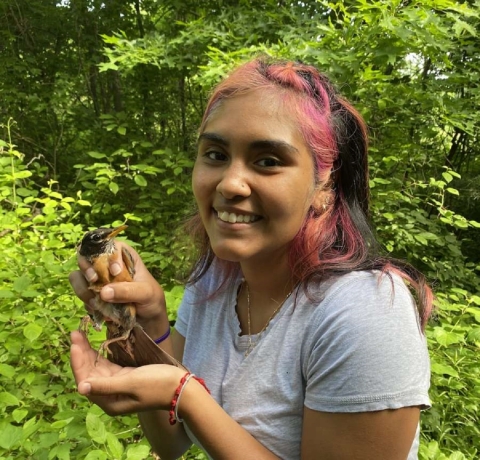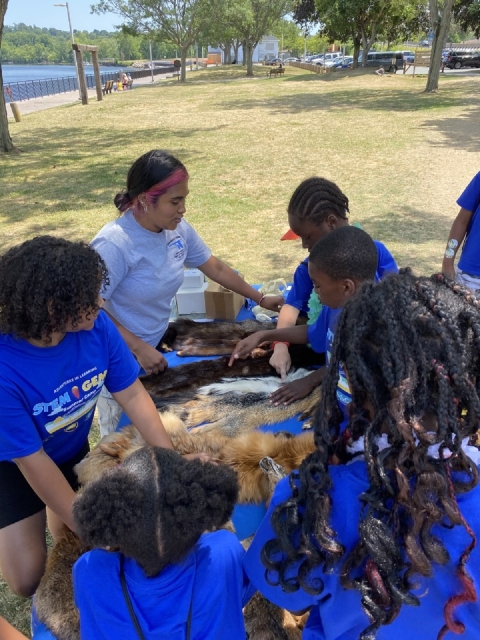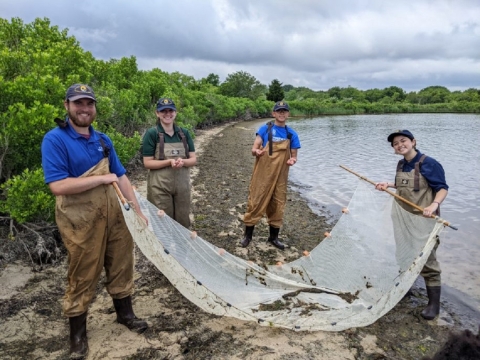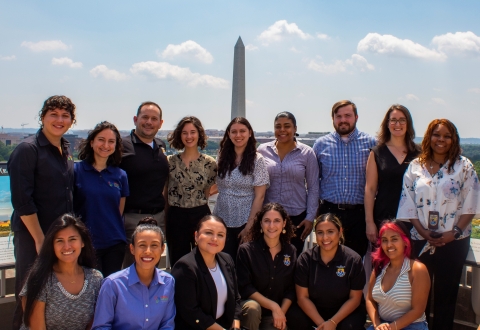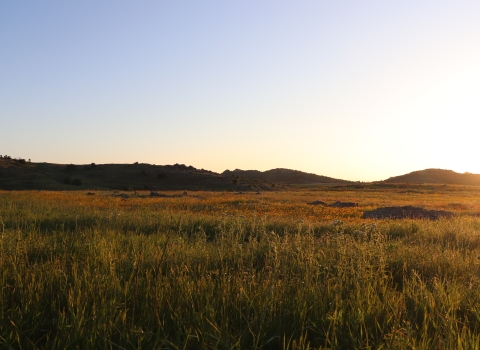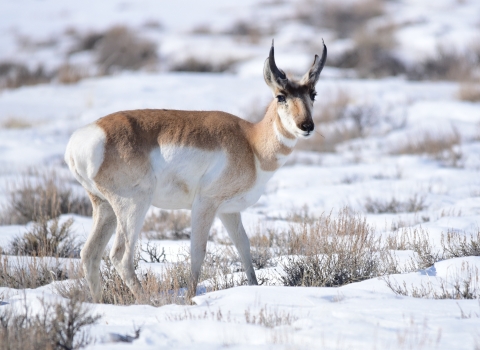Our Hispanic Access Foundation interns have spent this summer basking in the glory of that #USFWS life – getting outside and engaged in projects that support natural resource conservation and give back to wildlife and people. Whether through recreation, education, or stewardship, these bright young interns are bringing people together as a communidad to spread an important message about disfrutando y conservando nuestra terra: enjoying and conserving our land.
A bridge to nature
Growing up in Boston, the topic of conservation didn’t come up often in Ashley Castillo’s daily life.
“In most instances, the 'nature' I saw was trees planted on the sidewalks. As time progressed those street trees began to disappear, too,” she said.
It wasn’t until later, when she spent time away from the city, that she began to find her passion for nature calling. Today, she’s passing along that passion to others as an intern with the Silvio O. Conte National Fish and Wildlife Refuge in Massachusetts, where she’s been developing and leading educational programs for youth summer camps in the cities of Springfield and Hartford. There, she’s teaching budding nature-lovers all about wildlife adaptations, food webs, and the importance of trees – including those planted on sidewalks.
“With the U.S. Fish and Wildlife Service, I’m able to see all the outreach that is being done to build a bridge to connect these urban communities with conservation and nature,” Ashley said.
Building those bridges is a priority for each of our interns this year, whose field stations all reside in or near major cities – places which are historically underrepresented when it comes to conservation efforts. People of color and low-income communities in urban areas are among those most affected by lack of access to outdoor spaces and environmental challenges. It’s in these areas where the Service works to cultivate relationships through community-centered conservation efforts.
Giving back to the community
Deliannie Martinez, another of our interns, is keeping close to home this summer as she works with the Providence Parks Urban Wildlife Refuge Partnership in Providence, Rhode Island. A daughter of Guatemalan immigrants with a goal of becoming a science educator, Deliannie’s work has focused on bringing environmental learning far beyond the classroom.
So far, she’s gotten her fill taking kids seining in salt ponds, banding geese, and leading Vamos a Pescar! Take me Fishing!, a bilingual event that provides children and families with everything they need to get out and fish in their own community.
Deliannie’s experience working with the Service in her native city has given her a new appreciation for the nature right outside her door – a lesson she’s certain will follow her to her own classroom someday.
“Conserving wildlife begins by acknowledging it exists everywhere around us, " Deliannie said. "I’ve come to learn of the importance of sharing with my Latinx community the beauty of simplicity when it comes to nature.”
Opening doors for future leaders
According to a 2022 Census Bureau news release, the Hispanic population is one of the fastest growing demographics in the country. Unfortunately, many job sectors in America – conservation included – haven’t caught up to that statistic. Recognizing these challenges, the Service collaborates with partners like the Hispanic Access Foundation to foster more equitable opportunities for people of color and create a workforce that better reflects the diversity of the public it serves.
“Our work is about the next generation of leaders,” said Michelle Neuenschwander, Director of the Hispanic Access Foundation’s MANO Project internship program. “This unique experience provides extensive training, mentoring and professional development to ensure students have the tools and knowledge needed to excel in their fellowship and a career in conservation.”
Earlier this summer, the cohort got a glimpse into Service leadership when they met in Washington, D.C. with Shaun Sanchez, Deputy Chief of the National Wildlife Refuge System.
Sanchez shared his success story as a Latino who rose the ranks into leadership – happy to recount his adventures working on refuges across the country, but careful not to dismiss the challenges he’s faced as a person of color in a predominantly white field.
Significant progress has been made since he first joined the Service, Sanchez explained – evident even by the simple fact of their meeting together – but there is still plenty of work left to do. He likened change within the Service to steering an aircraft carrier; it takes patience and a lot of coordination to make things happen effectively. “We don’t want to lose anyone by turning the ship too quickly and tilting too much to one side.”
Rest assured, if anyone’s going to change the conservation world for the better, it’ll start with these individuals and the talent and passion they bring to the table each and every day.

